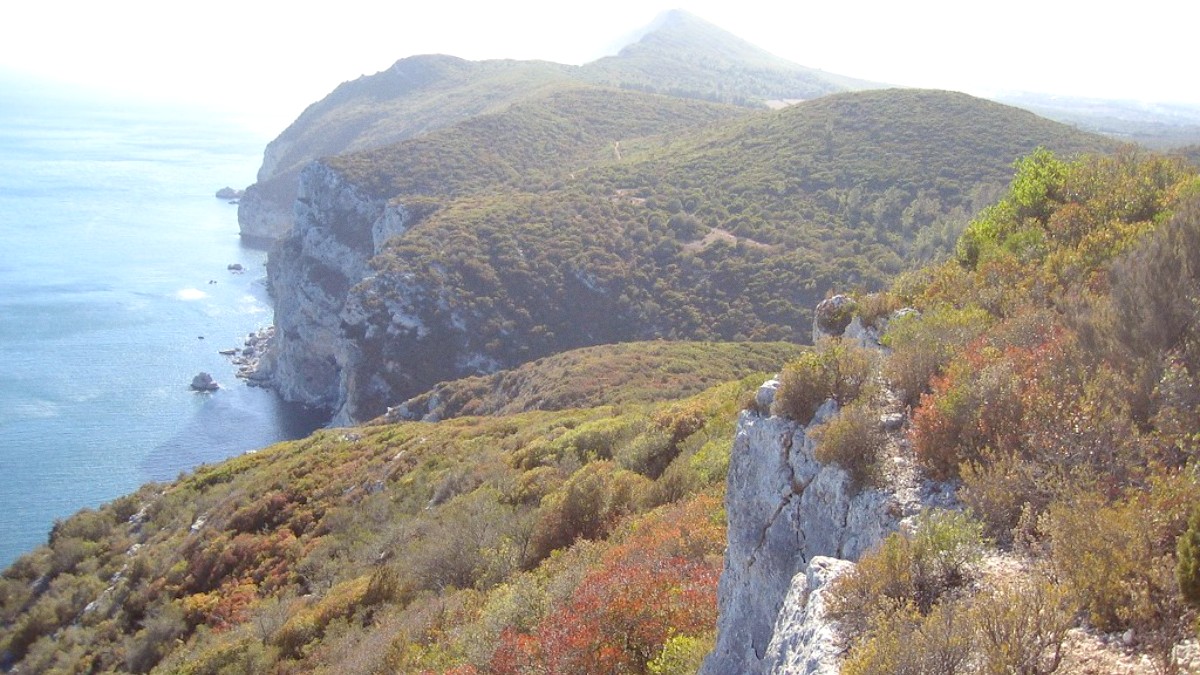
Lisbon, Portugal
Summer (June-September): Warm, sunny weather. Average high temperatures range from 25°C to 30°C (77°F to 86°F), often peaking above 35°C (95°F) in July and August. Humidity stays moderate. Precipitation remains very low, with many clear, cloudless days. Long daylight hours accommodate extensive outdoor activities.
Autumn (October-November): Temperatures cool, ranging from 18°C to 25°C (64°F to 77°F). Rainfall increases, especially in November, marking the wetter season. Days remain pleasant for exploration, particularly in early autumn. The landscape changes, with vineyards showing autumn colors. Winter (December-February): Winters are mild. Average high temperatures hover around 14°C-17°C (57°F-63°F), with lows typically between 7°C-10°C (45°F-50°F). This is the wettest period, with more frequent rainfall, though extended dry, sunny spells are common. Spring (March-May): Temperatures steadily rise from 17°C to 23°C (63°F-73°F). Rainfall significantly decreases compared to winter, with increasingly sunny days. The countryside turns lush and green, with wildflowers blooming, creating a beautiful time for nature walks.
High Season (June-August) means warm, sunny weather for beaches, but also crowded sites and higher prices. Shoulder Season (April-May, September-October) presents pleasant temperatures, fewer crowds, and better accommodation/flight prices. Low Season (November-March) has the lowest prices and fewest tourists, with mild temperatures but a higher chance of rain.
Warmest, busiest
Perfect for beaches and water activities. All services at full capacity. Lively atmosphere.
Crowded, higher prices. Intense heat can make midday sightseeing uncomfortable.
Pleasant, fewer crowds
Ideal temperatures for city exploration and hiking. Fewer crowds, reasonable prices. Early autumn still good for beaches.
Ocean water cooler in spring. Some seasonal services may close late Oct. More rain in late autumn.
Lowest prices, quiet
Lowest prices for accommodation and flights. Fewer tourists, authentic local life. Mild temperatures for sightseeing.
Higher chance of rain. Some beachside establishments closed. Water activities limited due to cooler temps. Shorter daylight hours.
Setúbal does not experience monsoons or hurricanes. Summer heatwaves occur, specifically in July and August, when temperatures can exceed 38°C (100°F). During these periods, forest fires pose a risk in the dry areas of the Arrábida Natural Park. Local authorities issue warnings, and restrictions on park access may occur.
Coastal areas, including Setúbal's waterfront, can experience breezy conditions, especially in spring and autumn. This wind often provides a welcome cooling effect in summer.
June to September: Warmest ocean temperatures and sunniest days.
April to October: Comfortable and pleasant boat tours.
Late August to September: Grape harvest provides unique insight.
April-May, September-October, or November-March: Fewer crowds and comfortable temperatures.
Portugal is part of the Schengen Area, which has unified border controls for many European countries.
Portugal is a member of the Schengen Area. Citizens of many countries, including the United States, Canada, Australia, the United Kingdom, Japan, and Brazil, can enter Portugal visa-free for tourism or business. This visa-free entry allows stays of up to 90 days within any 180-day period across all Schengen countries.
Prepare your documents carefully to facilitate smooth entry into Portugal.
Setúbal generally presents a more affordable experience compared to Lisbon or the Algarve.
These estimates cover accommodation, meals, local transportation, and entry to attractions.
Budget Traveler: €50-€80 daily. Accommodation: €20-€35 (hostel dorm/basic guesthouse). Meals: €15-€25 (groceries, street food, budget cafes). Transportation: €5-€10 (walking, public transport). Activities: €10-€15 (free attractions, low-cost museums).
Mid-range Traveler: €80-€150 daily. Accommodation: €50-€90 (mid-range hotel/guesthouse/apartment). Meals: €30-€50 (mid-range restaurants). Transportation: €10-€20 (public transport, occasional taxis). Activities: €20-€40 (museums, dolphin watching tour).
Budget guesthouse: €40-€70. Mid-range hotel/apartment: €70-€120. Luxury hotel/boutique stay: €120+.
Hostel dorm: €20-€35.
Prices rise during peak summer months.
Budget lunch (Prato do Dia): €8-€12. Mid-range dinner (without drinks): €15-€25. Fine dining (without drinks): €40+.
Coffee (bica): €0.70-€1.20. Pastel de nata: €1.20-€1.50.
Restaurant wine: €15-€30. Supermarket wine: €4-€10.
Single bus ticket: €1.50-€2.00. Viva Viagem card: €0.50 + €1.35 per ride. Ferry to Troia (return): ~€8.40. Train from Lisbon: ~€4.55.
Mercado do Livramento & Forte de São Filipe grounds: Free entry.
Dolphin watching tour: €40-€60. Wine tasting: €10-€30.
| Strategy | Details | Outcome |
|---|---|---|
| Eat Like a Local | Seek "Prato do Dia" or "Menu do Dia" at tascas for fixed-price meals. | Hearty, authentic, inexpensive meals. |
| Shop at Markets | Mercado do Livramento for fresh produce, bread, cheese, cured meats. | Assemble own picnic lunches or simple meals. |
| Use Public Transport | Utilize local buses and ferry to Troia; buy a Viva Viagem card. | More economical than taxis/rideshares. |
Portugal is a safe country, but awareness and preparation remain important.
None for general tourism, unless from a yellow fever risk country.
Routine vaccinations (MMR, DTP, Varicella). Hepatitis A/B, Rabies for some travelers.
Sunburn, heatstroke, dehydration are common. Use sunscreen, wear hats, drink water.
Tap water in Setúbal and throughout Portugal is safe to drink.
Food hygiene standards remain high in Portuguese restaurants and eateries. Freshness, especially of seafood, is a point of pride. Use common sense when eating street food or from less formal establishments.
Carry Hand sanitizer for general good practice. Use a Reusable water bottle.
Universal for all emergencies (police, fire, ambulance).
Hospital de Setúbal (São Bernardo) is the main public hospital.
Recognizable by a green cross. Many pharmacists speak English.
Setúbal is generally considered a safe city for tourists. Portugal has a relatively low crime rate.
Travel insurance is highly recommended for all travelers. It should include comprehensive medical coverage.
Covers medical emergencies, hospitalization, emergency medical evacuation, or repatriation.
Covers trip cancellation, interruption, or delay, and lost/stolen luggage.
Emergency Services: 112. Your country's embassy/consulate in Lisbon. Bank's emergency number for lost cards. Consider AirHelp for flight compensation.